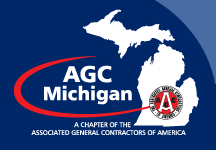Background
Currently, parties involved in a construction project must provide various notices, statements, and claims of liens. Procedures can vary depending on whether the project is for commercial property or residential. PA 28 of 2007 amends the Construction Lien Act to restrict the applicability of certain provisions to residential properties; specifically, provisions regarding a sworn statement provided by a contractor or subcontractor about an improvement to a structure and to a waiver of lien.
PA 28 of 2007 will do the following:
- In a warning to an owner or lessee required to be included in a sworn statement, specify that the owner or lessee of the property shall not – rather than may not – rely on the sworn statement to avoid the claim of a subcontractor, supplier, or laborer who had provided a notice of furnishing to the designee or to the owner or lessee if the designee was not named or had died. (A sworn statement is a notarized document that lists every subcontractor, supplier, and laborer who provided labor and materials for the project. A subcontractor or supplier must provide a notice of furnishing after furnishing the first labor or material; a laborer must provide one when wages are due but not paid. The document must be given to the owner, lessee, or designee, and the contractor.)
- Restrict – to a construction project involving an improvement to a residential structure – the requirement that an owner or lessee provide notice of receipt of a sworn statement to each subcontractor, supplier, and laborer providing a notice of furnishing or named in the sworn statement. Upon request, the owner, lessee, or designee would have to give a copy of the sworn statement to each subcontractor, supplier, or laborer who was entitled to notice under these provisions.
- Restrict – to an improvement provided to a residential structure – the requirement that an owner, lessee, or designee not rely on a full or partial unconditional or conditional waiver of lien provided by a person other than the lien claimant named in the waiver if the lien claimant had filed, or was excused from filing, a notice of furnishing unless the owner, lessee, or designee had first verified the authenticity of the lien waiver with the lien claimant. The language contained in the form for the various waivers (partial and full unconditional waivers, as well as partial and full conditional waivers) would be modified to reflect this change.
Since the facts of each case are unique, this update cannot be taken as legal advice. For more information about the Michigan Construction Lien Act or how PA 28 of 2007 might affect you or your business, please feel free to contact Peter Cavanaugh.






